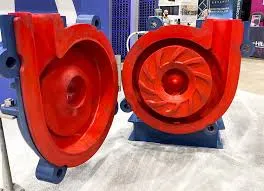Sinhala
- Afrikaans
- Albanian
- Amharic
- Arabic
- Armenian
- Azerbaijani
- Basque
- Belarusian
- Bengali
- Bosnian
- Bulgarian
- Catalan
- Cebuano
- Corsican
- Croatian
- Czech
- Danish
- Dutch
- English
- Esperanto
- Estonian
- Finnish
- French
- Frisian
- Galician
- Georgian
- German
- Greek
- Gujarati
- Haitian Creole
- hausa
- hawaiian
- Hebrew
- Hindi
- Miao
- Hungarian
- Icelandic
- igbo
- Indonesian
- irish
- Italian
- Japanese
- Javanese
- Kannada
- kazakh
- Khmer
- Rwandese
- Korean
- Kurdish
- Kyrgyz
- Lao
- Latin
- Latvian
- Lithuanian
- Luxembourgish
- Macedonian
- Malgashi
- Malay
- Malayalam
- Maltese
- Maori
- Marathi
- Mongolian
- Myanmar
- Nepali
- Norwegian
- Norwegian
- Occitan
- Pashto
- Persian
- Polish
- Portuguese
- Punjabi
- Romanian
- Russian
- Samoan
- Scottish Gaelic
- Serbian
- Sesotho
- Shona
- Sindhi
- Sinhala
- Slovak
- Slovenian
- Somali
- Spanish
- Sundanese
- Swahili
- Swedish
- Tagalog
- Tajik
- Tamil
- Tatar
- Telugu
- Thai
- Turkish
- Turkmen
- Ukrainian
- Urdu
- Uighur
- Uzbek
- Vietnamese
- Welsh
- Bantu
- Yiddish
- Yoruba
- Zulu
Telephone: +86 13120555503
Email: frank@cypump.com
නොවැ. . 05, 2024 12:05 Back to list
slurry pump spare parts factories
Understanding Slurry Pump Spare Parts Factories
Slurry pumps are essential components in various industries, particularly in mining, mineral processing, and construction, where the transportation of abrasive and corrosive slurries is a daily necessity. To keep these pumps running efficiently, the importance of high-quality spare parts cannot be overstated. This article delves into the role of slurry pump spare parts factories, highlighting their significance, manufacturing processes, and the factors to consider when choosing the right supplier.
The Role of Slurry Pump Spare Parts
Slurry pumps are designed to handle mixtures of liquids and solids, often under challenging conditions. Therefore, the wear and tear on these pumps can be substantial, necessitating regular maintenance and replacement of parts. Spare parts such as impellers, liners, seals, and bearings are crucial for ensuring optimal performance and longevity of the pumps.
When these parts wear out, they can lead to inefficiencies, increased energy consumption, and potential downtime, which can significantly impact a company's productivity and profitability. Therefore, having reliable access to quality spare parts is critical for any operation that relies on slurry pumps.
Manufacturing Processes in Spare Parts Factories
Factories specializing in slurry pump spare parts employ a range of manufacturing processes to produce high-quality components. The production begins with material selection, where durable and corrosion-resistant materials such as high-chrome alloys or rubber compounds are chosen based on the specific application and conditions the parts will face.
The manufacturing typically involves several key processes
1. Casting and Molding For metal components like impellers and casings, casting is a common technique. Sand casting and investment casting are popular methods that allow for precise shapes and sizes. For rubber parts, molding techniques are used to create resilient seals and liners.
2. Machining After casting, parts often undergo machining processes, which can include turning, milling, and grinding. This step ensures that the components meet stringent tolerances and surface finish requirements.
3. Quality Control Throughout the manufacturing process, quality control is paramount. Factories must conduct rigorous inspections and testing to ensure that every part meets industry standards and can withstand the harsh environments in which they will be used.
slurry pump spare parts factories

4. Coating and Finishing Many parts are treated with protective coatings to enhance durability and resistance to abrasion and corrosion. This finishing step is crucial for prolonging the lifespan of the components.
Choosing the Right Supplier
Selecting a reputable supplier for slurry pump spare parts is a critical decision that can affect the efficiency of operations. Here are several factors to consider
1. Quality and Compliance Ensure that the factory adheres to industry standards and quality management systems, such as ISO certifications. Look for suppliers with a strong reputation for producing reliable and high-quality parts.
2. Customization Options Some operations require specialized components. A good supplier should offer customization capabilities to meet unique specifications and requirements.
3. Lead Time and Availability Timeliness in delivery is crucial for minimizing downtime. Evaluate the supplier’s lead times and inventory levels to ensure that parts can be delivered quickly when needed.
4. Technical Support and Expertise A knowledgeable supplier can provide valuable assistance in selecting the right parts and offering maintenance advice, which can enhance the overall performance of slurry pumps.
5. Cost and Warranty While cost is an important consideration, it should not compromise quality. Look for suppliers that provide competitive pricing and warranties on their products, which reflect their confidence in the quality of their spare parts.
Conclusion
Slurry pump spare parts factories play a vital role in ensuring the efficiency and reliability of slurry pumps across various industries. Understanding the manufacturing processes, the importance of quality, and how to choose the right supplier can make a significant difference in maintaining optimal operations. By prioritizing quality spare parts and fostering strong supplier relationships, companies can enhance their productivity and operational dependability.
-
Custom Drilling Mud and Slurry Pump Supplier - High Efficiency, Tailored Solutions
NewsJun.10,2025
-
Supply Vertical Submersible Sewage Pump High-Efficiency WQ/QW Pumps Supplier
NewsJun.10,2025
-
Premium Sewage Ejection System & Pumps Efficient Waste Removal
NewsJun.09,2025
-
Premium Wholesale Slurry Pump Impellers Durable & Efficient Slurry Handling
NewsJun.09,2025
-
Top Sewage Pump Companies Durable Industrial Solutions for Efficiency
NewsJun.09,2025
-
Heavy Duty Slurry Pumps - OEM High Performance & Bulk Wholesale
NewsJun.09,2025










